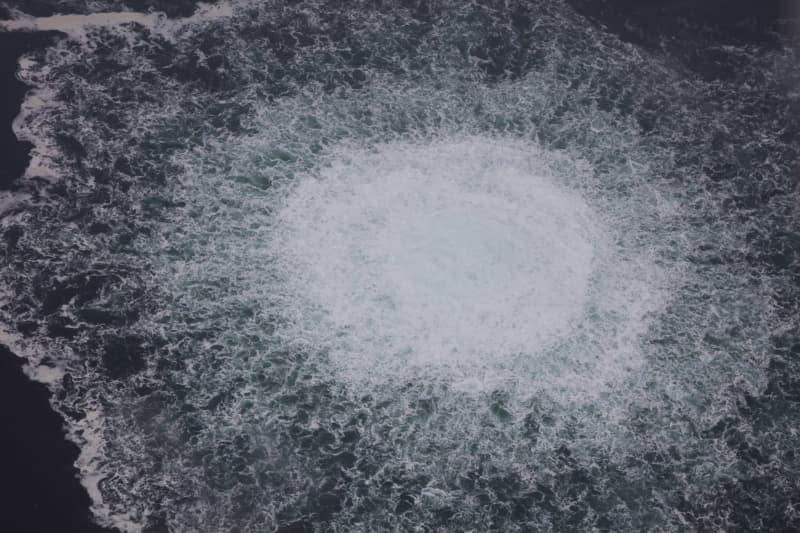Swedish public prosecutor ends Nord Stream pipeline sabotage probe

The Swedish public prosecutor's office has closed its investigation into the sabotage of the Nord Stream pipelines in the Baltic Sea, Mats Ljungqvist, who is in charge of the probe, said on Wednesday.
Prosecutor Ljungqvist said that it had concluded that there was no Swedish jurisdiction in the case.
Ljungqvist explained that nothing had been found during the extensive investigation that indicated that Sweden or Swedish citizens had been involved in the attack in international waters.
The German investigation into the case is continuing, he emphasized.
German newspapers Süddeutsche Zeitung and Die Zeit and the regional public broadcasters NDR and WDR had already reported on Tuesday that Ljungqvist apparently wanted to discontinue the proceedings.
They reported that the German authorities could benefit from the Swedish move because the Swedish side could make its evidence available to them.
The German Federal Public Prosecutor's Office announced that Germany's investigations are continuing. "No further information will be provided at this time," a spokeswoman said in Karlsruhe on Wednesday.
Russia has repeatedly complained that it has not been involved in the investigations, and the closure of the Swedish proceedings was criticised in Moscow. "The decision is significant, and it is significant how it (the investigation) was ended," said Kremlin spokesman Dmitry Peskov, according to Russian news agencies.
He said the German government must now prove how important it considers the investigation to be. "Germany's taxpayers and German companies are suffering - companies are losing their competitiveness without this gas," he said.
On September 26, 2022, several explosions were recorded near the Danish island of Bornholm in the Baltic Sea and shortly afterwards four leaks were discovered in three of the four Nord Stream pipelines that used to deliver gas from Russia to Germany.
Investigations were then launched in Sweden as well as in Germany and Denmark.
In November 2022, Ljungqvist confirmed the suspicion that this was a case of serious sabotage. Analyses had shown explosive residues on several foreign objects, he explained.
In a joint letter to the UN Security Council, the UN embassies of Germany, Denmark and Sweden wrote in July 2023 that investigators had discovered traces of explosives on a suspicious sailing yacht.
The letter stated that it was suspected that the yacht had been used to transport the explosives used in the sabotage. It was discovered that the boat had been hired in the name of a person who had used documents to conceal the identity of the real hirer.
According to expert assessments, trained divers could have planted explosive devices in the places where the gas pipes had been damaged, the letter continued.
At the same time, however, it also emphasized that the question of the perpetrators was unresolved: "At this point in time, it is not possible to reliably clarify the identity of the perpetrators and their motives, particularly with regard to the question of whether the incident was controlled by a state or a state actor."
Nord Stream 1 and 2 each run as an underwater twin pipeline over a distance of around 1,200 kilometres from Russia to Germany.
Nord Stream 1 has supplied a significant proportion of the gas imported to Europe since 2011.
However, in the course of the confrontation with the West following the Russian invasion of Ukraine, Moscow had already cut back supplies before the explosions and then stopped them completely.
The newer Nord Stream 2 pipeline had already been filled with gas, but was not yet in operation due to a lack of certification.

